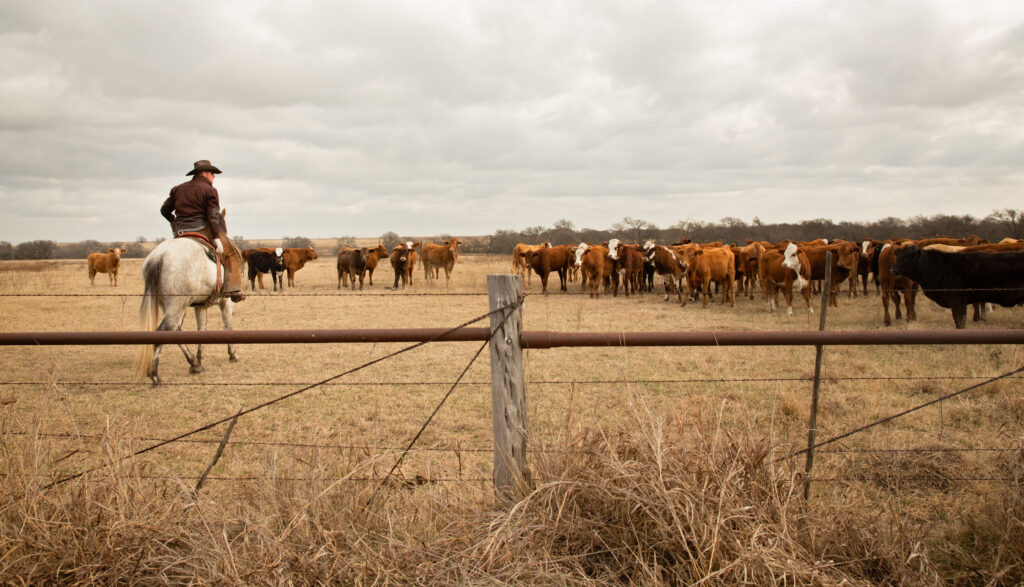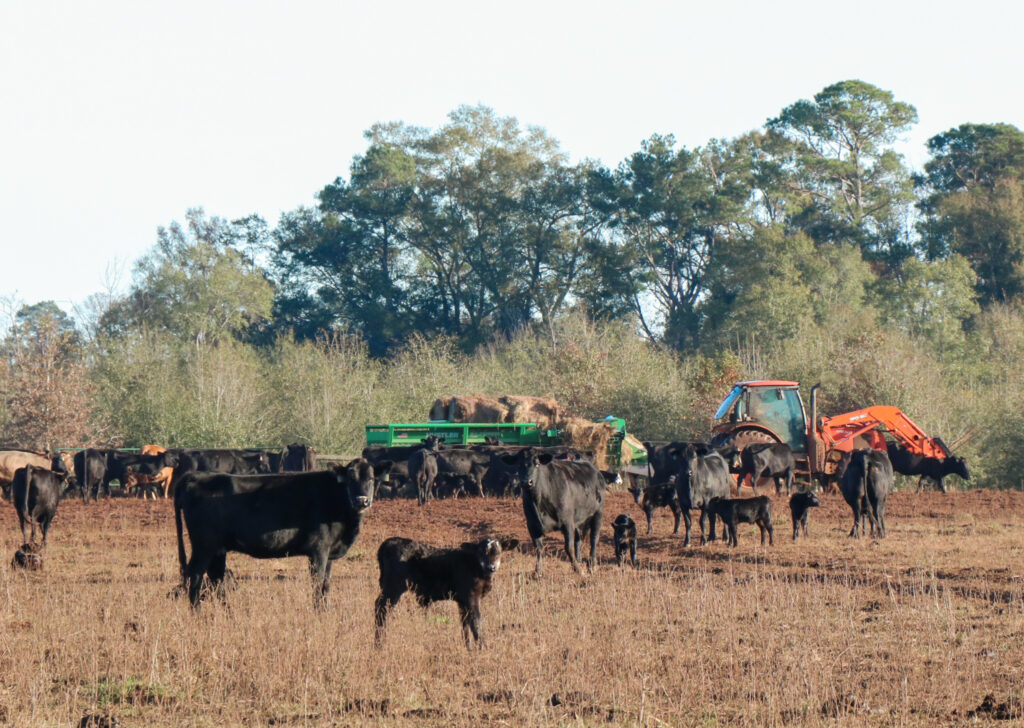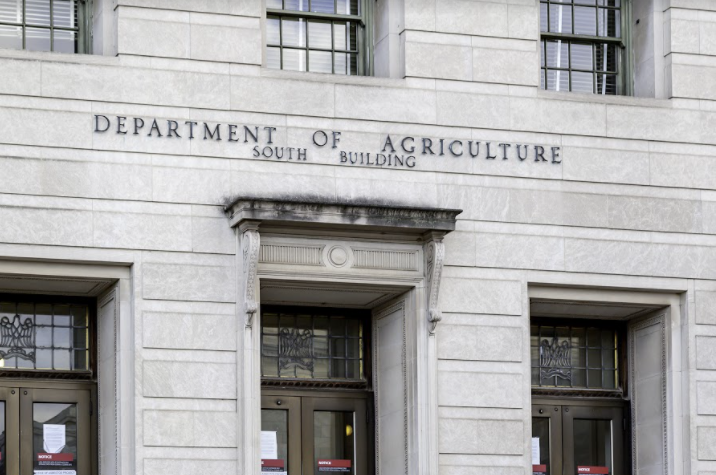
Checkoff Programs: Farmers Funding Their Opponents
Checkoff dollars claim to help producers. In reality, they entrench corporate control, siphon farmers’ wealth, and fuel the system driving them out of business.
Famous ad campaigns like “Beef. It’s What’s for Dinner” and “Pork. The Other White Meat” are the product of one of the most corrupt institutions in American agriculture: checkoff programs.
Originally created to let farmers voluntarily pool their money to promote their products, checkoff programs have morphed into a government-mandated system that extracts money from farmers—and funnels it to corporate lobbyists.
Today, America’s independent farmers and ranchers are forced to fund programs that actively work against their interests, propping up the world’s largest meatpackers, grain traders, and industrial agriculture groups.
Farmers deserve better. It’s time to reform these corrupt programs—and return power to the people who actually produce our food.
This short video uses the beef checkoff to illustrate how these programs actually work, how they exploit farmers and ranchers, and who actually benefits.
Farm Action released a report exposing how the U.S. Department of Agriculture (USDA) has enabled fraud and abuse within commodity checkoff programs by failing to meet legal oversight requirements.
Farm Action has documented the illegal use of checkoff funds for lobbying activities by special interest groups representing the world’s largest corporate agribusinesses, despite USDA’s court claim that it provides oversight to “every word” of the checkoff programs.
The report details materials from our Freedom of Information Act requests, which reveal that USDA failed to provide the necessary oversight to prevent checkoff program fraud and abuse, then worked with checkoff agents to cover their tracks after getting caught.
Decades of checkoff corruption has not escaped the notice of farmers — or the media. We’ve collected some of the most egregious checkoff abuses from recent years, but this is only the tip of the iceberg. For a deep dive into the history of checkoff programs — full of controversy, greed, and legal challenges — check out our “Root of the Issue” blog.
In November 2023, the North Dakota State Auditor’s Office released an audit revealing the North Dakota Soybean Council’s illegal use of federal soybean checkoff funds to lobby on agriculture policy.
The $85,000 in question was used in part to compensate staff who, in addition to educating policymakers, also spent time testifying on legislation.
In 2010, an independent audit examining the equivalent of just nine days of beef checkoff program spending found that the NCBA had improperly spent more than $200,000 in checkoff funds on lobbying and overseas vacations. Despite a Freedom of Information Act complaint, the full audit has not been released to the public.
2018: The Ohio Beef Council, entrusted by the government with managing the beef checkoff program in Ohio, illegally used government property to promote a fundraiser for a gubernatorial campaign on behalf of the trade and lobbying group, Ohio Cattlemen’s Association. According to the Ohio Cattlemen’s Association’s brochure, the Ohio Beef Council also solicited campaign contributions on behalf of the Ohio Cattlemen’s Association’s Political Action Committee (PAC) through the state agency’s email domain.
In 2018, an accountant for the Oklahoma Beef Council was charged with embezzling millions of rancher dollars over a seven-year period to open her own clothing boutique. This was possible due to a lack of oversight over the checkoff program.
Starting in 2011, the National Pork Board continued to pay the National Pork Producers Council $3 million per year for the “Pork. The Other White Meat” slogan for years after it was defunct in a licensing scheme. Independent pig farmers sued on the basis that their checkoff dollars shouldn’t go to NPPC, which actively works against their interests.
The dairy checkoff, being the largest pool of money, is legally required by Congress to submit annual financial reports — but failed to do so from 2012-2016.
The dairy checkoff organization, the National Dairy Promotion and Research Board, and the trade lobbying group, Dairy Management Inc. have an extremely close relationship. Until Sept 2021, Tom Gallagher was the CEO of both. His combined compensation from both roles was $1,512,930 — all as the farmers who pay this salary go out of business.
From 2014-2016, the American Egg Board waged a targeted campaign against a plant-based mayo startup, hiring a PR firm to track the startup’s online presence and tank its online advertising efforts. Egg Board executives exchanged emails about hiring a consultant to pull the product from Whole Foods’ shelves, and even about putting out a hit on its founder. Federal investigators determined that the Egg Board’s obsessive campaign focusing on one company and product — and failure to submit the budgets for that campaign to the USDA for review — violated federal guidelines.
In 2008, a complaint filed by soybean growers accused the United Soybean Board of a number of serious crimes: theft, sexual harassment, and even assault by the then-CEO of the U.S. Soybean Export Council. An investigation by the Office of Inspector General revealed that the Export Council had also doled out more than $300,000 of growers’ checkoff dollars to its staff as “bonuses.”
The Paper and Packaging checkoff program kicks the public out of its supposedly public meetings after roll call, and maintains close relationships with lobbying organizations like the American Forest and Paper Association (AF&PA) and the Coalition for Paper Options.
Farm Action worked with members of Congress to develop legislation that would restore transparency and accountability to checkoff programs.
The Opportunities for Fairness in Farming (OFF) Act would:
Our political partner Farm Action Fund is working with a large coalition to pass the OFF Act. Want to help? In just a few clicks, you can ask your legislator to co-sponsor the OFF Act.

Checkoff dollars claim to help producers. In reality, they entrench corporate control, siphon farmers’ wealth, and fuel the system driving them out of business.

The MAHA Commission’s May report exposed corporate capture in ag policy—but the leaked strategy draft dodges solutions. One big reason: government checkoffs.

Two new lawsuits are ripping the lid off the U.S. Department of Agriculture’s (USDA) beef checkoff programs.

Internal documents reveal that the USDA failed to meet legal oversight requirements for checkoff programs and enabled the misuse of funds.

His misleading return-on-investment studies prop up the legitimacy of the beef checkoff program and protect NCBA’s largest source of funding.

NCBA has rigged the checkoff contracting system to pour ranchers’ dollars into its own pockets.